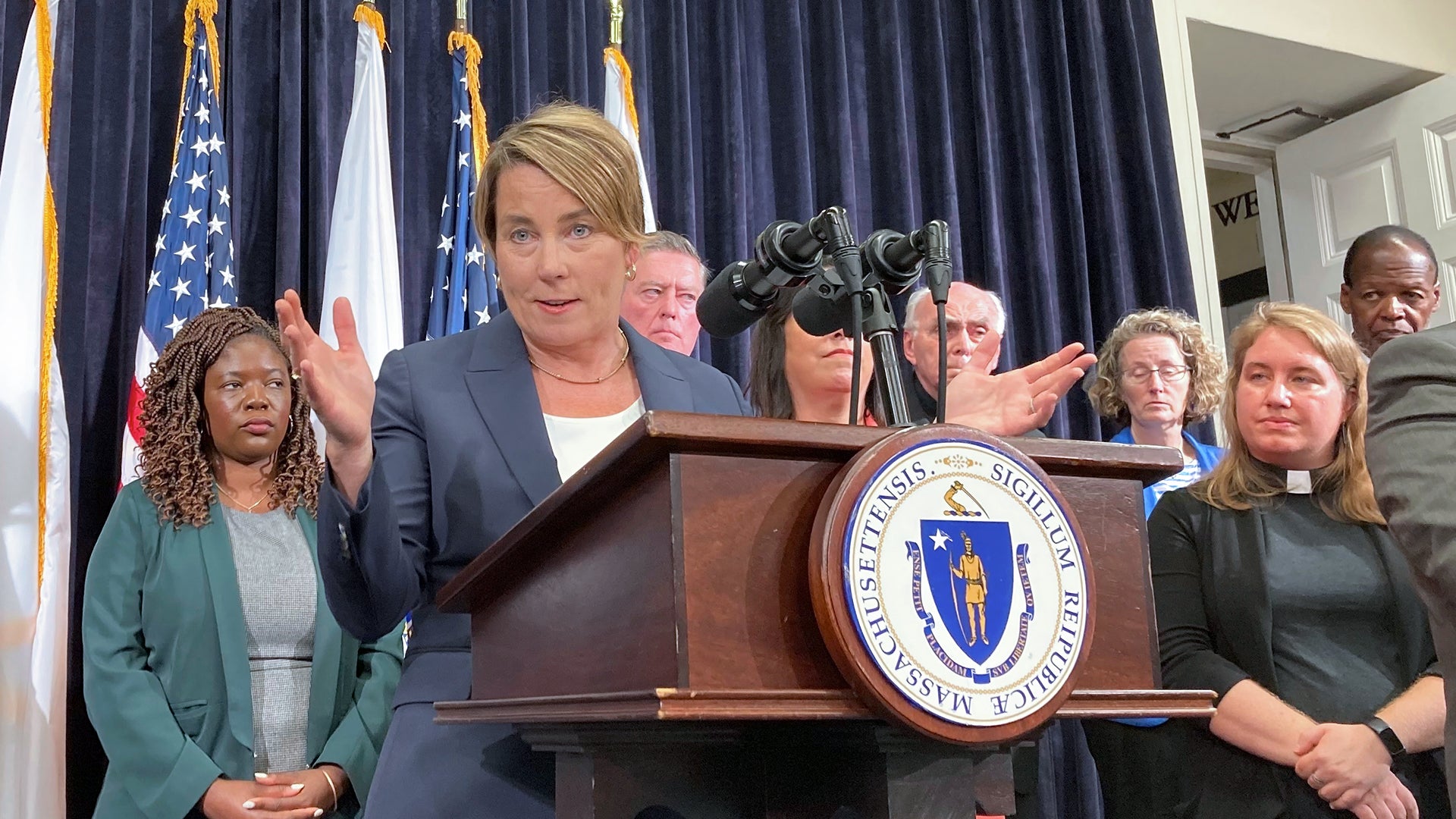
Massachusetts Gov. Maura Healey (D) declared a state of emergency Tuesday, citing an influx of migrants seeking shelter at a time when the cost of housing continues to rise.
There are nearly 5,600 families or more than 20,000 people – many of whom are migrants – currently living in state shelters, including infants, young children, and pregnant women. That is up from around 3,100 families a year ago, about an 80% increase, Healey said.
Many of the migrants are arriving by plane from other states. In the past 48 hours alone, she said, 50 migrant families have landed in the state in need of shelter.
“It’s exponentially more than our state has ever served in our emergency assistance program,” she said. “These numbers are being driven by a surge in new arrivals in our country who have been through some of the hardest journeys imaginable.”
She called on the federal government for financial help, and more urgently, expedited work authorizations to allow the new arrivals to more quickly find jobs and start earning a living, she wrote in a letter to U.S. Secretary of Homeland Security Alejandro Mayorkas.
Many of the migrants arriving in Massachusetts are from Haiti. The Boston metropolitan area is home to the third-largest Haitian population in the U.S., according to Politico.
Paul Diego Craney of the Massachusetts Fiscal Alliance, a conservative group, responded to the governor’s plea, saying Healey and state lawmakers should rescind the state’s right-to-shelter policy.
“Perhaps it is time for the governor to take a trip to the southern border to see firsthand the open southern border crisis,” he said in a statement.
As CBN News reported in January, President Biden announced a policy to allow up to 30,000 migrants each month from Cuba, Nicaragua, Haiti, and Venezuela to legally apply for asylum, while expelling migrants from those four countries who cross illegally.
Some states led by Republicans — including Texas and Florida — have bused or flown immigrants to states and cities led by Democrats, including California, Massachusetts, New York, and Chicago.
A Migrant Island in the Big Apple
The Big Apple is feeling the surge of migrants too. On Monday, New York Mayor Eric Adams announced a plan to house as many as 2,000 migrants on Randall’s Island in the East River where a migrant center was set up last year and then taken down weeks later.
In addition, New York City officials are expecting at least eight more buses of migrants to arrive over the next two days.
On Wednesday, Adams released a forecast showing the migrant crisis could cost his “sanctuary city” more than $12 billion over the next two years.
“Since last year, nearly 100,000 asylum seekers have arrived in our city asking for shelter, and we are past our breaking point,” Adams said in a press release.
Adams asked the Federal Emergency Management Agency for $300 million for feeding and sheltering migrants but has received less than half to date with the Biden administration allocating $142 million in aid to the city so far, according to The New York Post.
“We need to control the border,” the mayor said last week.
Meanwhile, Arizona Sen. Kyrsten Sinema, an independent who caucuses with Senate Democrats, said last week she was “livid” that New York City was receiving federal funding to deal with migrants instead of states at the border, according to Fox News.
“What we’re experiencing here in Arizona is matched only by what folks are experiencing in southern Texas,” Sinema said. “Those are the two communities that are experiencing this crisis. The rest of the country is experiencing some elements of it, but we are experiencing the brunt.”
Illegal crossings along the U.S. southern border jumped more than 30% in July, according to preliminary U.S. Customs and Border Protection data obtained by The Washington Post.
U.S. agents made more than 130,000 arrests along the Mexico border last month, preliminary figures show, up from 99,545 in June. The spike in illegal crossings was most pronounced in the deserts of southern Arizona, The Post reported.
The remainder of this article is available in its entirety at CBN

